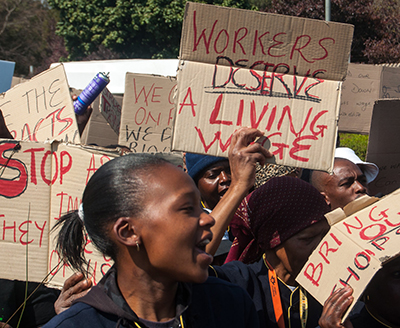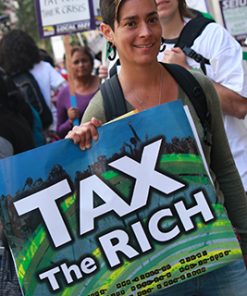By mandating wages that reflect the actual cost of living, societies can reduce poverty, improve mental health, and create economies grounded in fairness rather than exploitation.
People often work forty hours a week, maybe more, juggling jobs like a caffeine-fueled acrobat. Yet, after the bills are paid, there’s just enough left over to afford either groceries or a trip to the dentist—but not both. Welcome to the gig economy’s version of the American Dream, where you can have anything you want as long as it’s on the dollar menu.
The concept of a living wage isn’t radical. It’s common sense with a paycheck attached. It’s the idea that if you work full-time, you should be able to afford the basic ingredients of a dignified life: shelter that doesn’t double as an icebox in winter, food that doesn’t come exclusively from discount bins, and healthcare that doesn’t require crowdfunding. Yet somehow, the living wage debate often spirals into apocalyptic predictions. “If we pay people more,” critics wail, “the economy will collapse, and capitalism will unravel!”
A minimum wage is not the same as a living wage. The minimum wage is the legal floor—often set so low it’s more of a trapdoor. A living wage, on the other hand, is tied to actual living costs. The U.S., the federal minimum wage has been stuck at $7.25 since 2009. Since then, the cost of living has risen faster than a tech CEO’s ego, but wages have stayed frozen, as if time itself paused in the Obama administration. The absurdity is palpable. You can’t buy a movie ticket with an hour’s worth of minimum wage labor, but sure, let’s keep pretending it’s a fair rate.
Rent, healthcare, childcare, and education have skyrocketed, while wages have flatlined like a bad EKG. The result? Millions of people working full-time jobs yet living in poverty, as if poverty were some kind of character-building exercise.
The psychological effects of poverty are corrosive. Chronic financial stress triggers anxiety, depression, and a sense of hopelessness that seeps into every aspect of life. It’s hard to focus on personal growth, education, or community involvement when your brain is locked in survival mode. Poverty shrinks your mental bandwidth, creating a vicious cycle where stress impairs decision-making, leading to more stress. And the benefits of a living wage ripple far beyond the individual. Financial security fosters stability, confidence, and the freedom to plan for the future rather than just the next paycheck. People with economic stability are more likely to engage in civic life, invest in education, and contribute to their communities—because they’re no longer drowning in the cognitive load of constant scarcity.
Yet, studies show that moderate increases in the minimum wage don’t lead to significant job losses. In fact, higher wages often boost local economies because—wait for it—people with money tend to spend it. You know, on things like food, rent, and the occasional overpriced coffee.
Consider Denmark, where there’s no official minimum wage because strong unions ensure wages are negotiated at levels that meet living costs. The result? Low poverty rates, high productivity, and a workforce that doesn’t view work as a soul-crushing ordeal but as, well, a job. Imagine that—treating workers like humans instead of disposable cogs.
A living wage is also about values. It asks a simple question: do we believe that people deserve to live with dignity, or are we content with an economic system that relies on the working poor subsidizing corporate profits through their own suffering? Because let’s be honest—poverty isn’t accidental. It’s engineered. Corporations pay low wages not because they can’t afford more, but because they don’t have to. They’ve externalized the cost of cheap labor onto society—public assistance programs, emergency healthcare, and overworked social services pick up the slack. Essentially, taxpayers subsidize corporate stinginess while some CEOs collect bonuses large enough to personally fund a small country.
Raising wages also addresses inequality, which isn’t just a moral issue but an economic one. Extreme inequality stifles growth, concentrates wealth in unproductive ways, and breeds social instability. You can only squeeze the middle and working classes so hard before things start to crack—historically, those cracks don’t end well for anyone.
But the benefits of a living wage are cultural and even spiritual. Imagine a society where people aren’t defined by the constant hustle, where success isn’t measured by how many side gigs you can juggle. A living wage reclaims time—time for family, creativity, rest, and the simple pleasures that make life more than just an exercise in survival. And there’s a freedom component. True freedom isn’t just the absence of tyranny; it’s the presence of opportunity. It’s hard to exercise your “freedom” when you’re shackled by economic precarity. A living wage expands freedom, giving people the agency to make choices based on aspiration rather than desperation.
The current system can treat low-wage workers as invisible, their labor essential yet undervalued. The pandemic laid bare the hypocrisy of labeling workers “essential” while paying them as if they’re expendable. If a job is essential enough to keep society functioning, it’s essential enough to pay a living wage. Try living in a world without garbage collectors, grocery clerks, or home health aides, and then say their work isn’t valuable. The fact that someone’s labor enables the basic functioning of society should be reason enough to ensure they can live decently.
And yes, there are costs. Businesses will have to adjust, prices may shift, and economic structures will evolve. But the cost of inaction is greater—a society where millions are trapped in poverty despite working full-time, where inequality festers, and where the psychological toll of financial insecurity erodes not just individual well-being but the social fabric itself.
The living wage is more than a policy; it’s a declaration of values. It says that work should be a path to stability, not a treadmill of exhaustion. It affirms that dignity isn’t reserved for the wealthy, that security isn’t a luxury, and that fairness isn’t negotiable.
Therefore, under Folklaw:
A living wage shall be mandated, ensuring that full-time work provides sufficient income to meet basic needs, including housing, food, healthcare, education, and transportation. Wage standards will be regularly adjusted to reflect the actual cost of living in different regions. Employers will be required to provide fair compensation, with no loopholes for tip-based jobs or gig economy roles.
Public assistance programs will complement, not replace, fair wages. Policies will support small businesses in transitioning to living wage standards, while corporate profit margins will not justify worker exploitation. The dignity of work shall be protected, and economic security recognized as a fundamental right.






Discussions
There are no discussions yet.